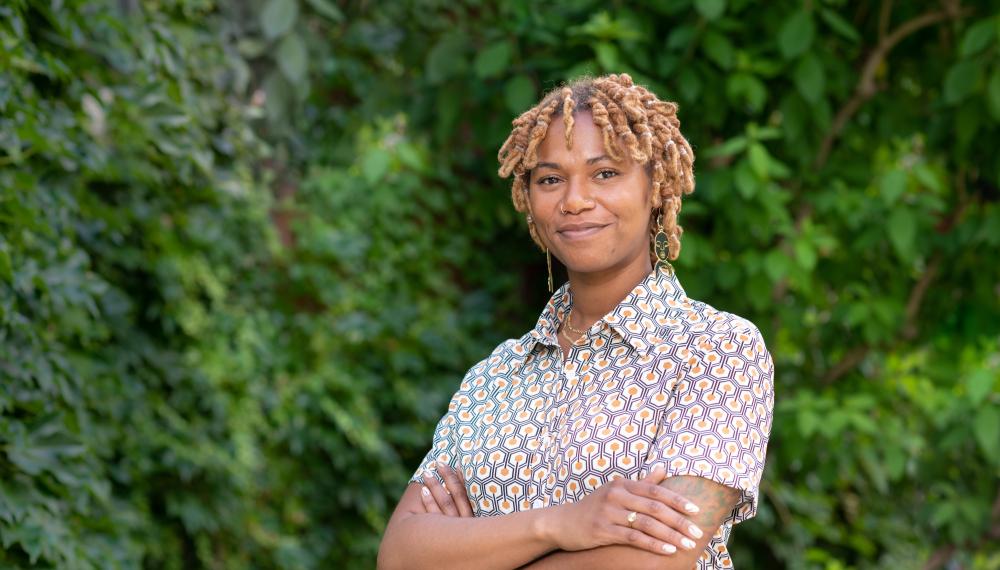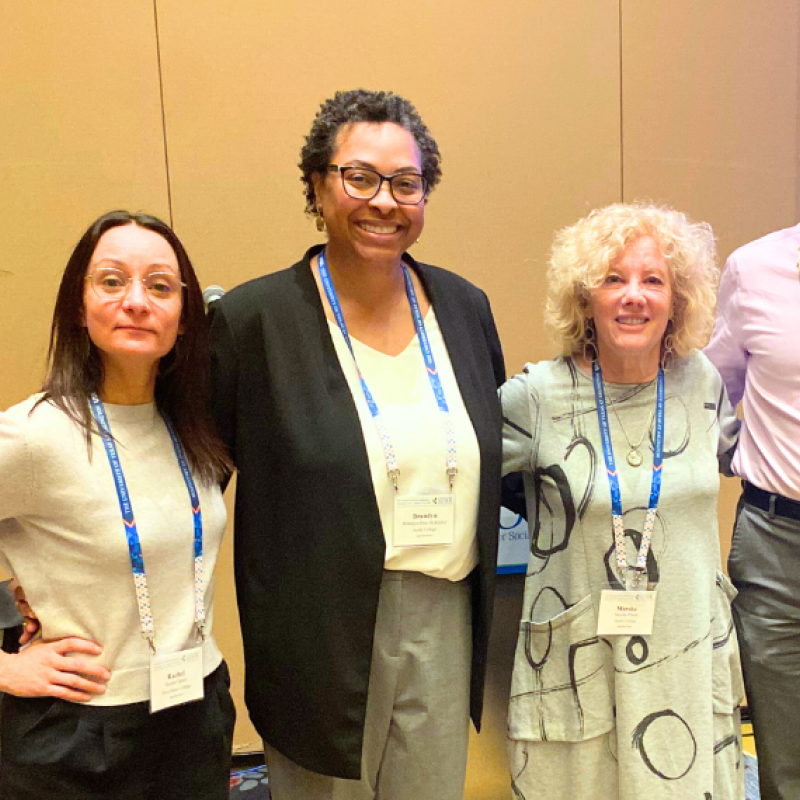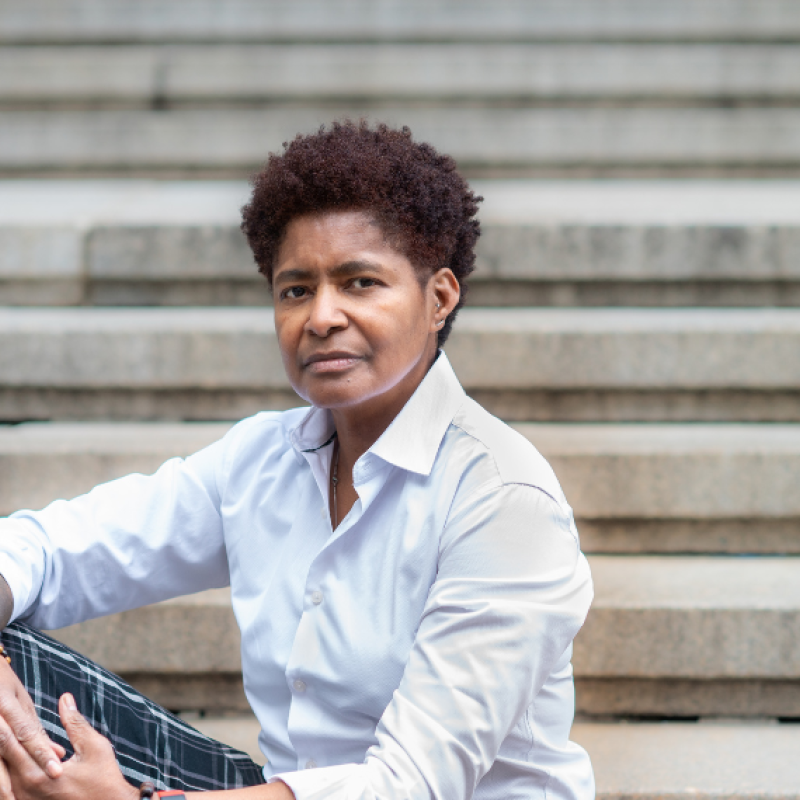
How can social workers navigate the layers of shared trauma and burnout when interacting and working with clients and within their own communities? For JaLisa Williams, M.S.W., LCSW, lecturer and resident SSW faculty member, it begins with grounding and coming together in community.
Williams’ work with friend and colleague from Denver, CO, Ozy Aloziem, M.S.W., a macro social worker whose focus is DEI and radical imagination, was recently published in a book edited by Ann Goelitz, Shared Mass Trauma in Social Work: Implications and Strategies for Resilient Practice. The chapter they co-wrote is titled, “Shared Trauma and Community Organizing” and focuses on healing-centered approaches to counteract the impact shared trauma has on community organizing.
Williams says that healing-centered approaches assist in getting communities back together and help people deal with burnout. Healing circles are one of her focuses, which she’s been doing since 2020 within her community in Denver, specifically in the Black community and with other folks of color. She also hosts regular larger scale healing circles in public libraries there, which include providing other supportive resources for participants.
“This chapter starts to play around with, ‘how can we be imaginative and creative when it comes to us having to get back to center, get back grounded?’ Especially when it comes to COVID-19 and we were also experiencing other traumas. We were still navigating a large amount of police brutality, which has always been, but it was seen in a different way due to the fact that we were all at home and social media was so prominent when it came to some of these experiences. We were really able to articulate some ways for us to navigate those and get us back to a wholeness, versus us being so disconnected and disassociated.”
Healing-centered work is important in addressing shared trauma, but focusing only on trauma is not always helpful, she says. Williams considered herself a trauma-informed yoga instructor for a long time, but she realized that approach centers traumatic experiences, not healing experiences. “It hasn’t centered the joy, love and the excitement, and as we start to decenter the things that white supremacy has set up as the focus, some beautiful things start to come out.”
Healing circles specifically can be so helpful in many ways right now, says Williams. “It’s creating connection, creating community. COVID had us all by ourselves- we were all isolated. Healing circles allow us to come back together and go back to this idea that we are one, while understanding that there are structural things affecting that oneness. They allow us to get back to grounding…we can be all over the place and in our heads, not in our bodies. Healing circles allow us to get back to a space of togetherness and allow us to not feel so alone in the experience…It allows us to center joy instead of trauma, which is really big.”
Williams shares the strategies that came out of her work that she feels are most helpful to social workers right now.
“Beginning with grounding creates a whole different dynamic in space and time. Grounding can look like many different things…I love breathwork, I’m a yoga instructor. Let’s say my community is my classroom, so before we start doing anything I always get my students grounded and centered, starting off with breathing. We talk about being here, letting things go. Especially when I think about Smith SSW summers in particular, they go so fast, everything is so heady. That’s fine, and that’s the culture that has been formed, but there is such a calling to slow down. When we come into space, how are we able to get folks to just be here? How are we able to navigate that?”
Williams says it’s important to keep thinking about joy being the focal point. Without that, it turns into the same old same old and there's a strong calling for things to change. She says that number one is grounding. After that, it can look like so many different things, such as a workshop on self care and mindfulness. For instance, this summer Williams did a healing circle on different types of breathwork, sharing strategies for when people are experiencing anxiety, when they need to calm down or wake up.
When asked what social workers should understand about her work and how to implement it in their own lives, practices and communities, Williams shared that one of the foundational aspects is accessibility, which is also reflected in the chapter she co-wrote. Williams says that her approaches are accessible.
“You don’t need a degree to sit down with your community and talk or share food— the idea of breaking bread… it’s accessible to folks to be able to integrate, [along with] journaling prompts and this idea of holding space.”
Williams says that many people tend to struggle with holding space, because they assume they need to shift or fix it, but instead they can just hold it.
“I think it is extremely powerful. Especially as social workers, we want to fix it…the reality of us holding space is so powerful, because folks are needing that…folks being able to learn ways to just hold and not do.”


